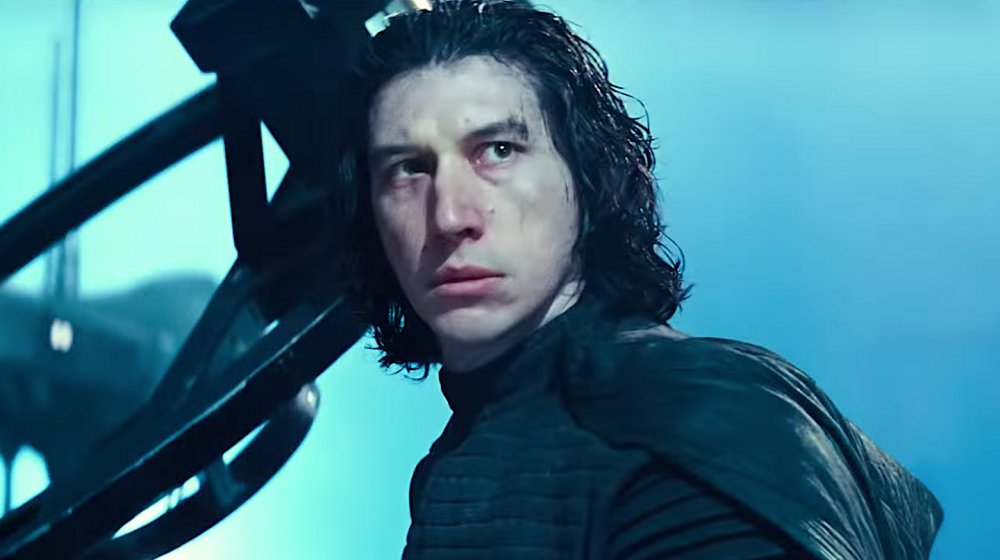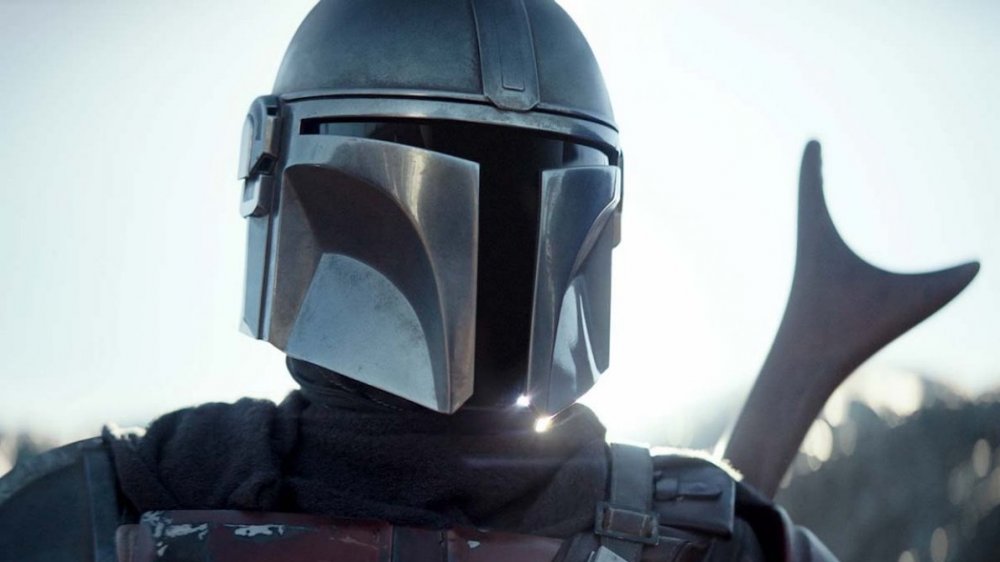Disney CEO Responds To Star Wars Outrage
When you're at the controls of a giant franchise, you can't please everybody — and this seems to go double for Star Wars fans.
Disney CEO Bob Iger took a philosophical approach to fans' dissatisfaction with the sequel trilogy during a conversation with Variety at the Star Wars: The Rise of Skywalker premiere. Iger acknowledged that, while the creative minds behind the series tried to be mindful of what fans wanted, they were also aware of the fine line between fan service and simple pandering.
"We don't overreact, we respect fans of Star Wars, that's really important to us, to Lucasfilm, to the franchise," Iger said. "But we do the best job we can, we think we had a very hard job in bringing this forward... satisfying the traditional fans and touching on themes and characters and places they were familiar with, but introducing the new places, new stories, new characters."
Iger expressed his own satisfaction with the job that his filmmakers had done on the sequels, including J.J. Abrams, who — as the co-writer and director of Rise of Skywalker — had the unenviable task of bringing the nine-film Skywalker Saga to a close in a way that would be true to all of the movies that came before, while still giving fans everything they wanted and telling his own unique story.
"I think over [the sequel trilogy], we've done a really good job of threading that needle, walking that fine line," he said. "We know we're never going to please everybody all the time, and we see that with Disney films, with Marvel films. So I don't mean to suggest that I'm dismissive of it because we respect our fans, but we don't overreact either."
Brace yourself for a shock: many fans and critics disagree. One of the common complaints about Rise of Skywalker has concerned its extreme willingness to indulge in pure fan service at the expense of its story, which can be seen as an ill-advised (if somewhat understandable) course-correction away from the daring narrative choices made by Rian Johnson, who co-wrote and directed previous installment Star Wars: The Last Jedi.
While that film was one of the best-reviewed in the entire series, it supremely divided fans — many of whom now feel that Abrams has swung too far back in the opposite direction, fielding a final entry that was entirely too safe. Another pervasive gripe: that Rise of Skywalker was illustrative of the fact that the trilogy as a whole lacked a unified vision, which may be why there has recently been talk of future Star Wars movies straying away from the trilogy format.
Lucasfilm President Kathleen Kennedy suggested as much during an interview with the Los Angeles Times over this past weekend. "I think [focusing on single films] gives us a more open-ended view of storytelling and doesn't lock us into this three-act structure," she said. "We're not going to have some finite number and fit it into a box. We're really going to let the story dictate that."
Iger, however, implied that her comments should be taken with a grain of salt. "Oh, I don't know about that," he said. "She and I have said, 'Well, maybe trilogies are too hard, so maybe we'll make one film and then a sequel,' but we don't know."
Of course, it's likely that some observers will take this as yet further evidence that the stewards of Star Wars lack a clear vision for the property — but even the staunchest critics of Iger, Kennedy, and those tasked with bringing fans further adventures set in the galaxy far, far away would have to agree that the House of Mouse hasn't done everything wrong.
What does the future hold for Star Wars?
In fact, one thing has gone very, very right for Disney's Star Wars endeavors of late: The Mandalorian, the Disney+ series that has drawn critical raves, helped amass millions of subscribers for the nascent streaming service, and launched a bonafide pop culture icon in "the Child," the adorable character better known to fans and the world at large as Baby Yoda. Iger admitted that, while he obviously had high hopes for the series' success, even he was blindsided by its absolutely rapturous reception.
"I think it would be wrong for me to say I knew exactly how everybody would react because it's been huge, but I did have a strong sense it was a character people were going to love," he said. "I knew my reaction as soon as I saw it: 'Wow' — I knew it was coming, too. But when you lay eyes on that character, there's something so compelling about that character. The old and the new, the adorable and the intriguing. I had a sense it was going to be big, but now it's exceeded my expectations, of course."
Perhaps The Mandalorian could help provide some guidance for Disney and Lucasfilm brass on how to effectively engage fans going forward — that is, beyond "put Baby Yoda in everything," which we honestly wouldn't have much of a problem with. Season 2 of the series is currently in production, and if creator/showrunner Jon Favreau is able keep fans hooked, Iger and Kennedy would do well to take a good hard look at how they could apply some of his Mando magic to future Star Wars films.
Of course, they've also reached out for a little help from across the hall; in a development which the Star Wars faithful have simply got to be pumped about, it was announced in September that Marvel boss Kevin Feige — who has had just a little bit of success in developing beloved properties for the big screen to the utter delight of fans — has been tapped to help develop a new Star Wars picture. While we won't see the fruits of this arrangement for quite some time, that's okay — Iger has made it clear that Disney won't be rushing any new Star Wars flicks to market after Rise of Skywalker, but will instead place the property on a 2-3 year hiatus while the direction of the franchise is worked out.
All of which is to say that while the sequel trilogy may not have been exactly what everybody hoped for, the future of Star Wars still looks reasonably bright at Disney. Also, it must be said: the Mouse House may not have fielded a perfect trio of films, but hey, they were better than the prequels, right?

